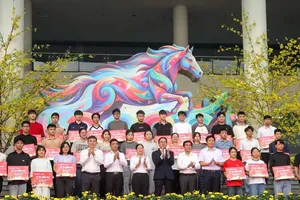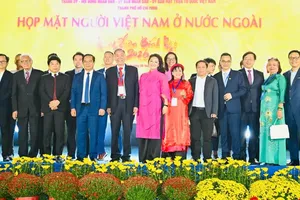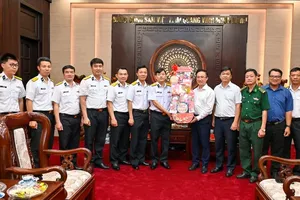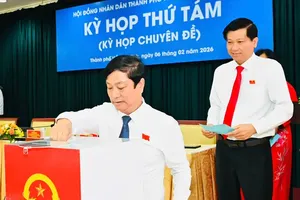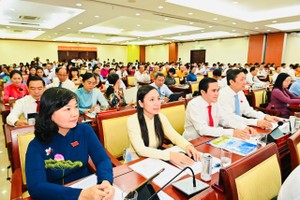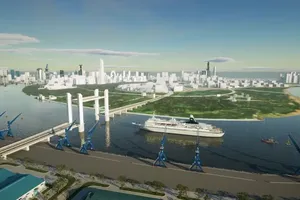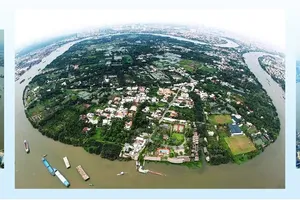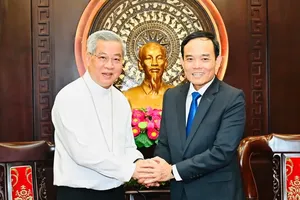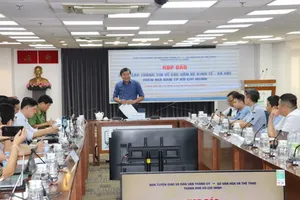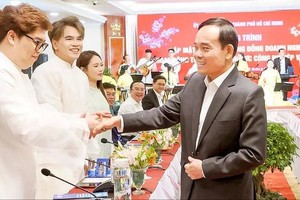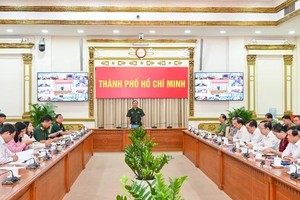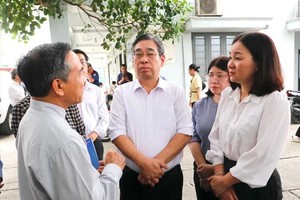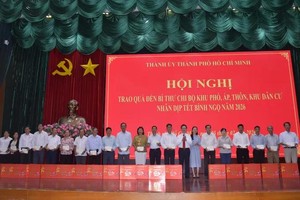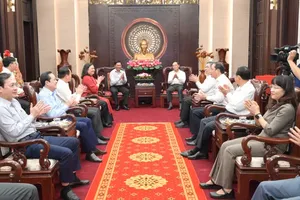
Ho Chi Minh City is moving swiftly to implement the special mechanisms and policies following the National Assembly-approved Resolution 98/2023/QH15. This includes the allocation of nearly a sum of VND3,800 billion (US$149.72 million) from the city budget for poverty reduction and job creation, the balance of over VND11,200 billion from salary reform to boost incomes for public servants and cadres, and the issuance of a list of urban development projects tied to Transit Oriented Development (TOD) and infrastructure upgrades. These actions prove the city's determination to unlock resources and create momentum for national progress.
Positive outcomes
In the days ahead of the Lunar New Year 2025, resident Hua Thi Le in Thoi Tam Thon Commune of Hoc Mon outlying district of Ho Chi Minh City and her family members spent all their time taking care of nearly 100 yellow apricot trees. She was carefully pruning each young branch to shape the apricot tree before delivering it to customers as it would generate income for her family. She was excited thinking about a prosperous Tet of her family when she would get money from customers who booked all apricot trees in the garden.
Ms. Le said that to have the apricot garden like this, it was partly thanks to accessing capital sources that Ho Chi Minh City entrusted to Vietnam Bank for Social Policies for loans to reduce poverty and create jobs. This is one of the first policies that Ho Chi Minh City implemented under Resolution 98/2023/QH15 on piloting a number of specific mechanisms and policies for the development of the southern largest city.
The woman said that after Tet last year, due to economic difficulties, her family no longer had the money to take care of the apricot garden. Understanding her family’s financial condition, a staff of the savings and loan group of the bank advised and supported her in applying for a preferential loan of VND50 million to help solve employment problems. Moreover, her child was eligible for the sum of VND50 million as the student loan.

Thanks to this preferential capital, her family's apricot garden was revived and her child was able to continue pursuing his dream. This policy has motivated all members in her family, she said, this loan helped them to overcome the most difficult time. She expected that more people who are in financial difficult condition will be given the opportunity to escape their fates.
Ms. Le's family is one of more than 52,000 cases receiving preferential loans for poverty reduction and job creation from the Ho Chi Minh City budget, entrusted by Vietnam Bank for Social Policies to lend a total amount of nearly VND3,800 billion after more than 1.5 years of implementing the Resolution 98. Along with this policy, over the past 1.5 years, Ho Chi Minh City has balanced more than VND11,200 billion from the city budget's salary reform source to spend on additional income for civil servants, public employees, and non-professional workers.
Tran Quy Ngoc, a civil servant of the one-stop division of the District 12 People's Committee, said that this policy helps civil servants have more income to take care of their families, stabilize their lives, thereby making them more secure in their work and improving work efficiency.
All resources mobilized for the city’s growth
The National Assembly’s Resolution 98 empowers Ho Chi Minh City with 44 special mechanisms and policies across seven key sectors, granting the city maximum autonomy to implement them. By the end of 2024, Ho Chi Minh City has put 30 of these mechanisms into action, while the HCMC People’s Council have so far issued over 40 resolutions to clarify the policies.
Chairman of the HCMC People’s Committee Phan Van Mai emphasized that the city is executing Resolution 98 with urgency and unwavering determination, seizing every opportunity to turn policies into tangible outcomes. Many of these measures have already delivered immediate and good results.
Notably, the city has restructured its budget and used salary reform funds to provide additional income, aiming to motivate and retain officials, public servants, and employees.

Along with that, funds from the city’s budget have also been entrusted to Vietnam Bank for Social Policies to provide loans for poverty alleviation and job creation, benefiting tens of thousands of people, helping them overcome difficulties, and fostering economic development.
In addition, the city has rolled out special mechanisms such as converting agricultural land for economic development purposes, investing in social housing projects, promoting entrepreneurship, encouraging innovation, and advancing the green, circular, and shared economy. Infrastructure development policies in transportation, healthcare, and education have also been a focus.
Decentralization has been implemented more effectively besides streamlining the urban governance system, ensuring operational efficiency, and addressing practical workloads. Chairman Phan Van Mai shared that these initial results have provided momentum for Ho Chi Minh City to accelerate its socio-economic recovery and development, gradually unlocking resources. Some mechanisms and policies have already been implemented successfully, gaining strong public support.
He affirmed that the city will continue to study and apply Resolution 98 to address difficulties, resolve bottlenecks in various sectors, and mobilize resources for development, ultimately improving the quality of life for its residents.

